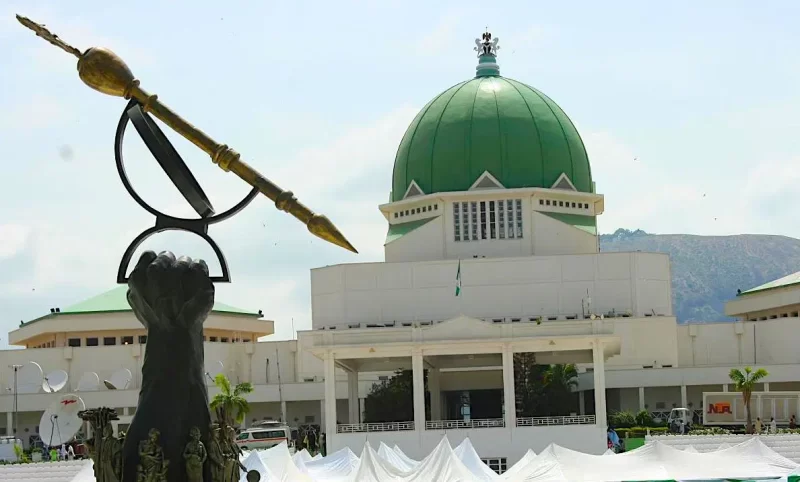INTRODUCTION.
The Senate is the upper chamber of Nigeria’s bicameral legislature, the National Assembly of Nigeria. The National Assembly (popularly referred to as NASS) is the nation’s highest legislature, whose power is to make laws, is summarized in chapter one, section four of the 1999 Nigerian Constitution. It consists of 109 senators: the 36 states are each divided in 3 senatorial districts each electing one senator using the first-past-the-post electoral system; the Federal Capital Territory elects only one senator also using first-past-the-post.
The President of the Senate is the presiding officer of the Senate, whose chief function is to guide and regulate the proceedings in the Senate. The Senate President is third in the Nigerian presidential line of succession. He is assisted by the Deputy President of the Senate. The current Senate President is Sen. Ahmed Ibrahim Lawan and the current Deputy Senate President is Ovie Omo-Agege, both members of the APC. The Senate President and his Deputy are also assisted by principal officers including the Majority Leader, Deputy Majority Leader, Minority Leader, Deputy Minority Leader, Chief Whip, Deputy Chief Whip, Minority Whip, and Deputy Minority Whip. In addition, there are 63 Standing Committees in the Senate chaired by Committee Chairmen. The lower chamber is the House of Representatives.
As the highest lawmaking institution in the country, the Red Chamber is constitutionally vested with the power of making laws for the peace, order and good governance of the Federation. Similarly, it is empowered to represent the interest, yearnings, aspirations and wellbeing of the citizenry. Also, the apex Parliament is saddled with the power of scrutinizing public institutions and officials to ensure probity and accountability in governance.
Similarly, the Upper Legislative house also intervenes in matters of urgent National interest like insecurity, epidemic, drought, poverty, illiteracy, flood and other national issues. It can also intervene in resolving disputes between the government and labour unions with a view to usher in industrial harmony and stabilize the nation’s polity.
The Red Chamber equally has a unique function of impeachment of the President, Vice President, Federal Judges and other high officials of the Executives; including the Federal Auditor General, Members of the Independent National Electoral Commission and Federal Inland Revenue Commission.
The Senate confirms the President’s Nominations of Senior Diplomats, Members of the Federal Cabinet, Federal Judicial Appointments, Members of the Nation’s Electoral Commission and so on.


